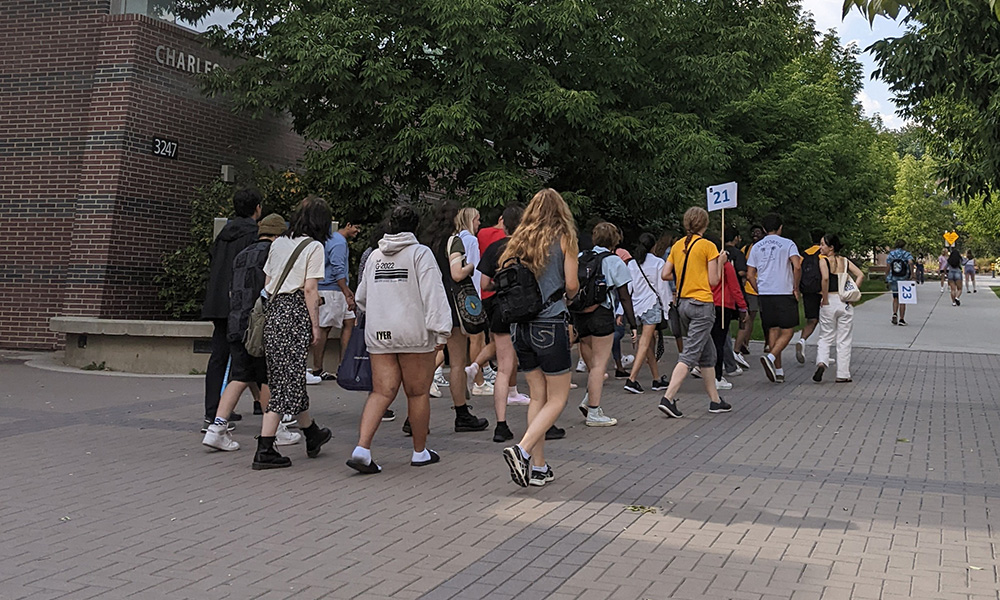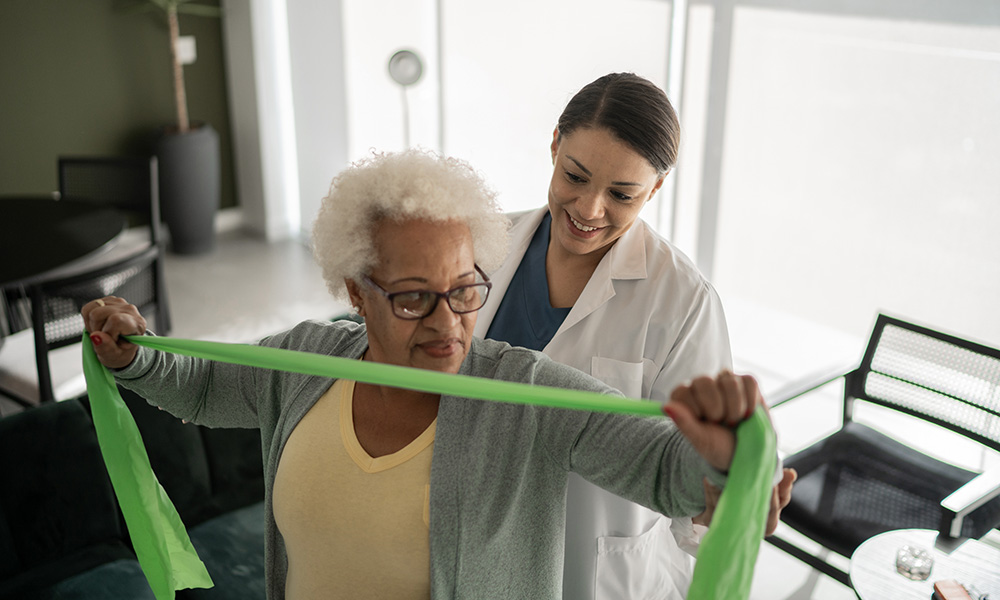
Student orientation programs will be in full swing Monday as UBCO’s Create takes place as part of a welcome for students new to campus. Classes for the academic year begin Tuesday.
Next week, after an extraordinary few days in August, classes will resume for the fall at UBC Okanagan.
Students, faculty and staff are gearing up for a busy back-to-school period. More than 12,035 students are registered for classes this September and almost 3,200 are new to UBCO. Move-in day will continue as planned on Sunday, September 3 with more than 1,400 students arriving to move into their on-campus residences.
Create, the new-to-UBCO student orientation, takes place Monday, September 4 and all classes will begin as scheduled and in-person on Tuesday, September 5.
“This summer, more than ever, we have seen the strength, professionalism and values of the UBC Okanagan community on full display,” says Dr. Lesley Cormack, UBCO Principal and Deputy Vice-Chancellor. “When our campus was placed on evacuation order just two weeks ago, the campus rallied together to ensure everyone was able to leave the area quickly and safely. Through this adversity, we saw UBCO’s values as a compassionate community shine through once again—it’s something our incoming students can take pride and comfort in.”
As UBCO looks toward the beginning of a new term, Dr. Cormack also recognizes it has been a trying time for many people. The health and safety of all students, faculty and staff is paramount and UBCO’s Campus Operations and Risk Management team continues to communicate directly with the Central Okanagan Emergency Operations team.
“While classes will begin as planned and it’s clear that campus is safe to welcome students from across Canada and the world, we also acknowledge there are many people within our community still not able to return home. And we’ve all seen the devasting images of homes and properties lost to the wildfire,” she adds. “The arrival of our students to the region has always brought a renewed sense of vibrancy and of the limitless possibilities created by education. I know this will be true this year perhaps more than ever.”
She notes, that the UBCO community bonded as never before with many people reaching out to offer help and support for those who were placed on an evacuation order or alert.
“I continue to be impressed by the calibre and character of the people on this campus,” she adds. “When faced with adversity, we reached out and supported each other in ways that have truly amazed me.”
As the campus begins to get busy as students move in and classes begin, Dale Mullings, Associate Vice-President, Students says the university has many resources for students and help is available for those who may need it.
“We continue to prioritize the wellbeing of our students, whether they live on or off campus,” adds Mullings. “For example, we have a number of initiatives specific to our students and this year, due to the wildfire emergency, we initiated the student emergency fund to help those immediately affected by the wildfires, and an airport welcome booth with a complimentary shuttle Friday, September 1 through Monday, September 4.”
Wellness and Accessibility Services has expanded to provide a health clinic, counselling services, wellness education, disability services and a new multifaith Chaplaincy. Many other services that support the wellbeing of our students such as our on-campus and in-community recreation programs, safe walk program, security phones across campus, a student-led Emergency First Response Team and the 24-hour campus security patrols are also gearing up for the year ahead.
While classes begin next week, Dr. Cormack notes there will be accommodations for those who remain under evacuation orders and alerts and cancelled travel plans.
“We will continue to work closely with those affected by the Kelowna-area wildfires to ensure they have the flexibility they require to start the school year successfully.”
A valuable resource for people returning to the community is the UBCO Campus Alerts page and FAQ which can be found at: ok.ubc.ca/wildfire-response
The post UBCO welcomes students to campus for start of new term appeared first on UBC Okanagan News.


